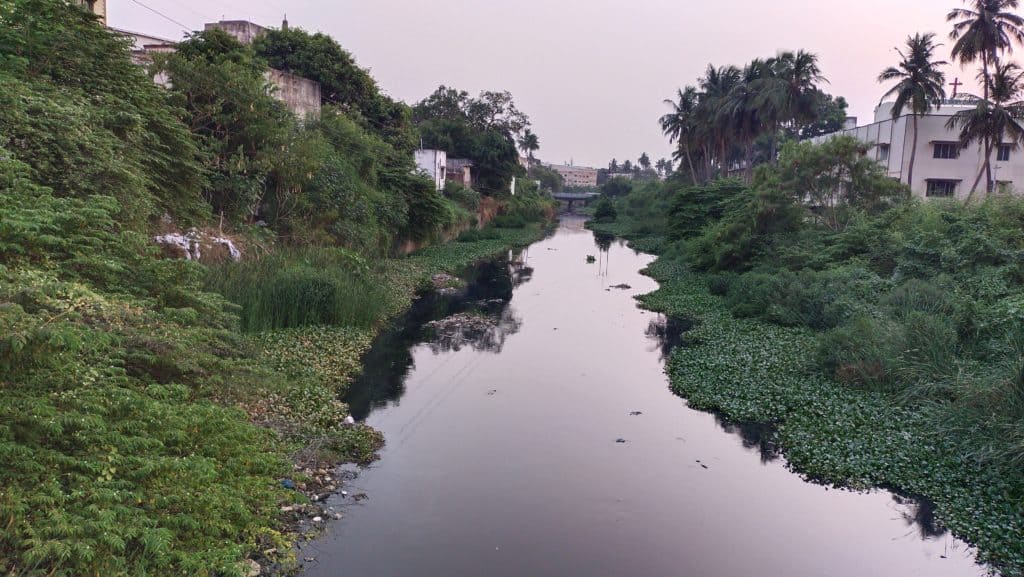Chennai’s first Climate Action Plan (CAP) released
Tamil Nadu Chief Minister MK Stalin, in the presence of Minister for Environment, Climate Change Siva V Meyyanathan, Chief Secretary V Irai Anbu, Additional Chief Secretary to Departments of Environment, Climate Change Supriya Sahu, Mayor R Priya and C40 Cities delegates, released the first Climate Action Plan (CAP) for Chennai on June 13.
The CAP, which is aimed to serve as a roadmap for the city to become carbon neutral by 2050, will focus on six priority areas such as electrical grid and renewable energy, building energy, sustainable transport, solid waste management, urban flooding and water scarcity, vulnerable populations and health.
Notably, the target fixed as 2050 for Chennai to become carbon neutral is two decades before the nation’s target of net zero by 2070.
Source: The Hindu
Smart meters to replace digital meters as TANGEDCO floats tenders
Tamil Nadu Generation and Distribution Corporation Limited (TANGEDCO) has floated the tenders to replace the existing digital meters with smart meters that will facilitate the automatic reading of power consumption. As part of it, the digital meters used to read the power consumption in households and small-scale industries are to be swapped with smart meters.
As many as 1.5 lakh smart meters have already been fixed in areas like T Nagar and Kodambakkam as part of the smart city project. However, bimonthly reading continues even in those areas.
Though there is a 40% vacancy of assessors in TANGEDCO, the government has put the recruitment on hold as they will become redundant once the smart meters are installed.
Source: The Times of India
Read more: 42 degrees and no electricity: Chennai looks for a solution to power cuts
CUMTA suggests new bus stands and pedestrian plaza in Anna Salai
Officials from Chennai Unified Metropolitan Transport Authority (CUMTA) along with Anshul Mishra, member secretary of Chennai Metropolitan Development Authority (Authority), Chennai Corporation, Tamil Nadu Road Sector Project, Traffic police, Chennai Metro rail Limited and Metropolitan Transport Corporation (MTC) conducted an inspection by travelling in the public transport in Chennai including the Metro rail to understand the urban mobility challenges.
Following the inspection, CUMTA came up with a list of suggestions that includes the establishment of new bus stands in a few spots, integration of railway foot over bridge (FOB) by extending it towards the bus stop near SIDCO, to develop space below FOB towards Anna Salai side into a pedestrian plaza, a bus terminus near Guindy post office, bus bays near Little Mount Metro Station to integrate Metro feeder service and moving away the bus stop from near Rajiv Gandhi Government General Hospital (RGGGH) as it results in traffic congestion during peak hours.
Source: DT Next
Read more: Smart mobility: The three primary challenges before Chennai today
Greater Chennai Corporation to take stringent action against those dumping garbage in waterbodies
Greater Chennai Corporation Commissioner J Radhakrishnan, who inspected the Integrated command control centre at Ripon Building ahead of monsoon preparatory works, told the media persons that regular inspections will be conducted to look into the issue of garbage dumping in water bodies.
The local body has collected a total fine of Rs 11 lakh and Rs 9 lakh for the dumping of garbage and debris in public areas in the past month alone.
In addition to slapping fines against the violators, GCC also will intensify the inspections during the night hours. The civic body also aims to complete stormwater drain works in various parks across the city by August ahead of the monsoon.
Source: DT Next
Read more: Sewage lorries polluting Chennai lakes, drains with impunity
Sewage lorry strike affects residents on the city outskirts
As many as 300 private sewage lorries operating in areas like Sholinganallur and Nesapakkam went on strike on June 10 in a protest against the Chennai Metropolitan Water Supply and Sewerage Board (CMWSSB)’s new regulation instructing the private sewage lorries to operate trips only through their 14420 helpline number.
Following the talks with the CMWSSB officials and getting an assurance that they need not operate through the department’s helpline, the private sewage lorry operators called off the strike on June 13 and resumed operations in the city.
Source: The Hindu
[Compiled by Shobana Radhakrishnan]
